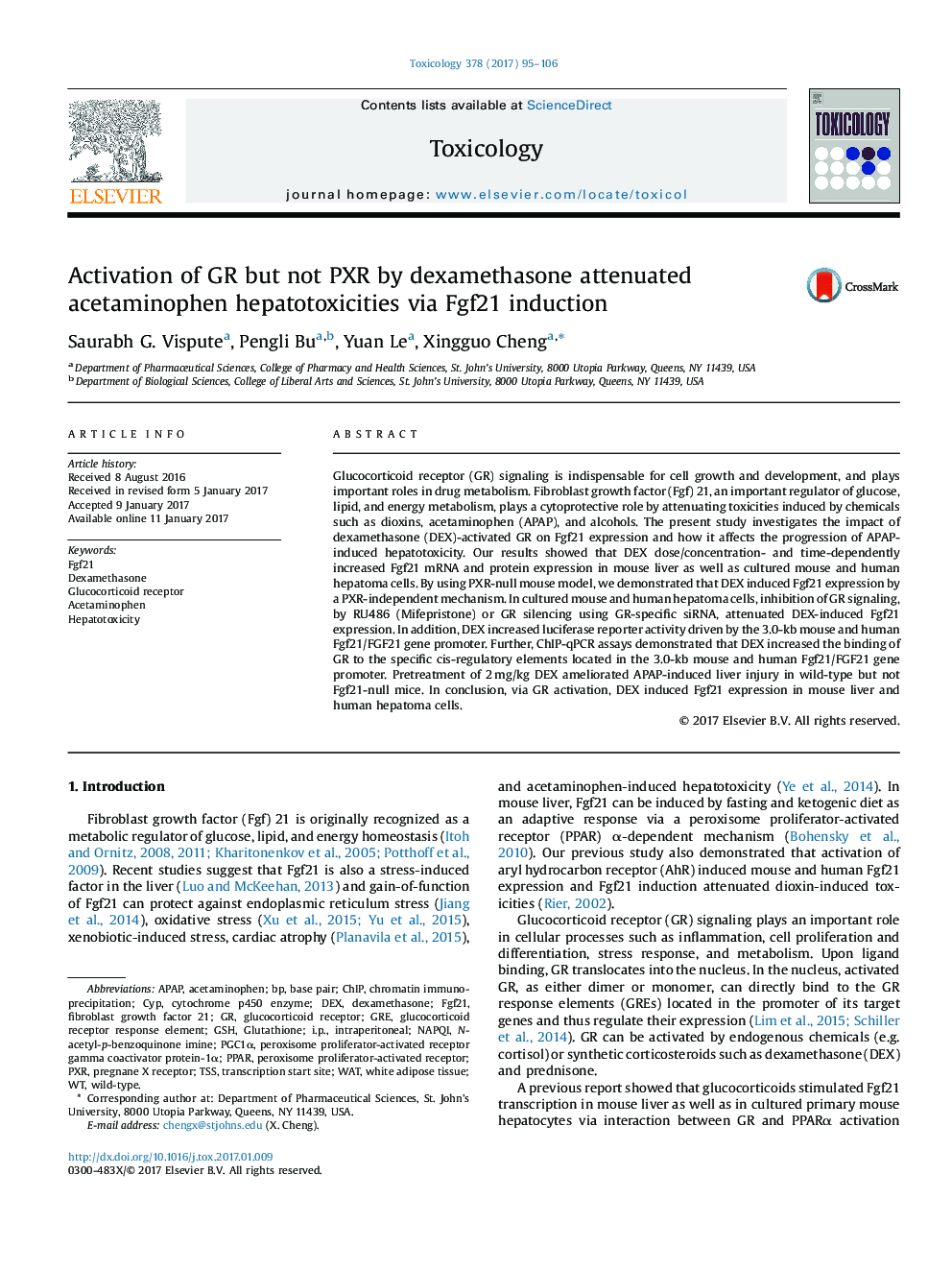| Article ID | Journal | Published Year | Pages | File Type |
|---|---|---|---|---|
| 5561869 | Toxicology | 2017 | 12 Pages |
â¢DEX induced Fgf21/FGF21 expression in both mouse and human liver/hepatoma cells.â¢Fgf21 is a direct target gene of GR.â¢Pretreatment of 2 mg/kg DEX attenuates acetaminophen hepatotoxicity.
Glucocorticoid receptor (GR) signaling is indispensable for cell growth and development, and plays important roles in drug metabolism. Fibroblast growth factor (Fgf) 21, an important regulator of glucose, lipid, and energy metabolism, plays a cytoprotective role by attenuating toxicities induced by chemicals such as dioxins, acetaminophen (APAP), and alcohols. The present study investigates the impact of dexamethasone (DEX)-activated GR on Fgf21 expression and how it affects the progression of APAP-induced hepatotoxicity. Our results showed that DEX dose/concentration- and time-dependently increased Fgf21 mRNA and protein expression in mouse liver as well as cultured mouse and human hepatoma cells. By using PXR-null mouse model, we demonstrated that DEX induced Fgf21 expression by a PXR-independent mechanism. In cultured mouse and human hepatoma cells, inhibition of GR signaling, by RU486 (Mifepristone) or GR silencing using GR-specific siRNA, attenuated DEX-induced Fgf21 expression. In addition, DEX increased luciferase reporter activity driven by the 3.0-kb mouse and human Fgf21/FGF21 gene promoter. Further, ChIP-qPCR assays demonstrated that DEX increased the binding of GR to the specific cis-regulatory elements located in the 3.0-kb mouse and human Fgf21/FGF21 gene promoter. Pretreatment of 2Â mg/kg DEX ameliorated APAP-induced liver injury in wild-type but not Fgf21-null mice. In conclusion, via GR activation, DEX induced Fgf21 expression in mouse liver and human hepatoma cells.
